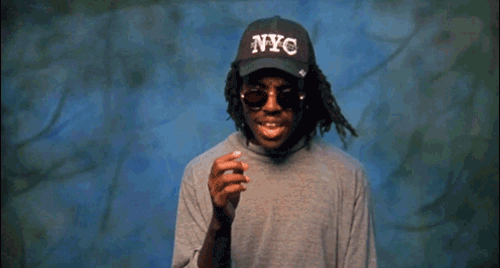In case you missed it, Beetlejuice
is a quirky Tim Burton comedy released in 1988.
It was only a modest box office hit but was one of my favorite movies as
a child. It is basically a horror movie
for gay kids: smart, colorful, a little macabre, and featuring themes of unresolved
conflict and interior design. The plot
revolves around a young married couple (the Maitlands) who die and decide they
have no option but to scare a very 80s bourgeois family (the Deetzes) out of
their (now haunted) house. As it turns out,
they are really bad at being scary, so bad in fact, that their only success is
in making being dead seem rather hip to the Deetz’s daughter Lydia.
The Maitlands, in their desperation, turn to a black market
ghoul known as Beetlejuice to contract out their spooking. By saying his name “Beetlejuice! Beetlejuice!
Beetlejuice!” they conjure him up from some from some netherworld and what
ensues is way more than what they bargained for.
I believe America and in particular Democrats, much like the
muddling Maitlands, will be facing a Beetlejuice election in a couple years. Republicans have had the House for a while
now, and in a few weeks they may control Congress. In order to keep their White House, Democrats
will most likely need their own Beetlejuice, a woman who has come back from the
political dead many times over and has shown an uncanny talent for sending
Republicans packing.
In 2008, many people of my generation were thirsty for
change. We were full of hope. Then we watched as the Washington meat
grinder took a president we loved and proceeded to eviscerate him. It still boggles my mind that approval
ratings could be so low for a president who has overseen falling unemployment
rates, falling budget deficits, 8 years of steady if slow economic recovery,
the biggest reforms of Wall Street since FDR, and the greatest improvement to
the social safety net since LBJ.
Needless to say in 2016, we will not be hopeful. We will be desperate – desperate not to lose
the substantial if still flawed progress that has been won, and desperate to
keep the every-man-for-himself of Republicans conservatism from outlasting the
limited solidarity garnered by Democratic progressivism. Even conservative commentators have bemoaned
the lack of vision from Republicans.
Their strategy has clearly been one of delay and conquer, obstruct and
overturn. They must not be rewarded for this
nihilism, one that defunds government programs and then rails against
bureaucratic inadequacies, one that says government is worthless unless it
serves and defends private wealth, and one that says America is meaningless
unless it is defined by the conservative imaginary.
The problem with Hillary and the Clintons is that they have not
beaten republicans by transcending politics.
They’ve beaten republicans through muddy jujitsu, trench warfare, by
simply being the last ones standing. In
electing Hillary we will probably be courting another 4-8 years of death grip
partisanship, but more and more this seems unavoidable. We need Hillary Clinton right now. We need her tenacity, we need her tirelessness,
we need her to make decisions we don’t want her to have to make and defend
things that perhaps only she can.
No, it is true. We
are in a dark hour as a country. For too
long the only lights to guide us have been the glare of the media’s fun house
mirrors, a haze of countless tragedies and absurdities trawling across our
screens. We are living in Tim Burton
times where the desperately powerful are the only ones courageous enough to be
seen, where spectators passively consume political ideology and shuffle numbly
from one freak show to another.
Political judgment has been replaced by political calculus. It’s not what should be done, not even what can
be done, but what must be done in
order to dislodge ourselves from crisis after crisis. This is the definition of unfreedom.
Electing Hillary Clinton may be a capitulation of sorts to
this paralyzing calculus. As president
she may only have marginal achievements.
She may sell out a progressive agenda at the first sign of trouble. But I also know that, facing what we are up
against and the prospect of losing, when November 2016 arrives, we all should
be voting “Hillary! Hillary! Hillary!”









